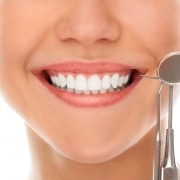Tips to Save Your Teeth For a Lifetime
Wouldn’t it be nice if you could keep your teeth and gums healthy for your entire lifetime? There are many cosmetic dental treatments available for issues ranging from missing teeth to discolored teeth; but it’s almost always easier to use preventive measures to take great care of your natural teeth. Here are some tips to save your teeth for a lifetime!
Visit the Dentist Regularly
Your dentist isn’t just the professional you turn to when something goes wrong. You should also make a practice of visiting the dentist on a routine basis. During every visit, the dentist performs an oral exam to see if there are any developing problems. If your dentist sees anything amiss, they will work to nip the problem in the bud so you don’t risk permanent teeth damage. Of all the tips on this list, visiting the dentist regularly is the most important!
Avoid Sugar
Professionals know with absolute certainty that bacteria consume sugar for survival. The more sugar you consume, the greater the population of bacteria in your mouth. Bacteria rot your teeth over time, so it’s crucial for dental health to do everything in your power to control bacteria levels. If you avoid sugar, you’ll be setting yourself up for a lifetime of healthy teeth. This includes avoiding sugary drinks like alcohol, too. Keep sugary snacks to a minimum or avoid them altogether.
Floss Teeth
Even after brushing, small food particles can remain in your mouth, between teeth. If you’ve ever had something stuck in between your teeth, you know how easily this happens. Flossing helps to get rid of those smaller food particles that brushing leaves behind. If you want to avoid tooth loss in the future, make a habit of flossing after each meal. This will go a long way toward ensuring your teeth last a lifetime.
Use ADA-approved Products
There are many tooth care products on the market, but they are not all equal in quality and effectiveness. To ensure you’re using the correct toothpastes, rinses and brushes, use only ADA-approved products. It’s easy to spot them; you’ll see the ADA label on anything that’s approved.
These are the best ways to take care of your teeth so they last as long as you need them. For more tips, talk to your professional dentist.










